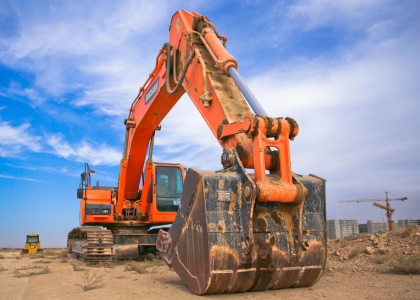Understanding Tax Deductions for Repair Costs
- Nairn Fisher

- Aug 20, 2025
- 3 min read
Updated: Sep 25, 2025
The Short Answer
No, you usually can’t claim a tax deduction for repairs you make to a capital asset (like a building or machine) you just bought, if those repairs are needed to get it ready for use. But, if the thing you bought is something you can depreciate (like a machine or a vehicle), you might be able to include those repair costs in your depreciation calculations.

Let’s Break It Down
What’s a Capital Asset?
A capital asset is something big and valuable you use in your business for a long time. This includes items like a building, a truck, or a large piece of equipment. It’s not stuff you buy to sell (like trading stock), but rather things you use to help your business run.
What Are “Essential Initial Repairs”?
These are repairs you must do right after you buy something, just to make it work for your intended use. For example, if you buy a shop that needs a new roof and plumbing before you can open, those are essential initial repairs.
Why Can’t I Deduct These Repairs?
The tax rules state that if you spend money fixing up something you just bought to make it usable, that money becomes part of the cost of purchasing it. It’s not a regular business expense but part of the “capital” cost. According to section DA 2(1) of the Income Tax Act 2007, you can’t claim a deduction for capital expenses.
What If I Can Depreciate the Asset?
If the item you bought is something you can depreciate (like a truck or a machine), you can add the repair costs to the value of the asset. Then, each year, you can claim a portion of that cost as depreciation. However, you can’t claim the entire repair cost as a deduction immediately.
How Do You Tell If Repairs Are “Essential Initial Repairs”?
If you had to do the repairs right after buying the asset to make it work for your business, they’re likely essential initial repairs.
If the repairs fix problems that existed before you purchased it, and you couldn’t use it without addressing them, those repairs are essential.
If you’re just performing regular maintenance or fixing things that broke after you started using it, those costs might be deductible as normal business expenses.
Examples
Example 1
You buy a trailer for your trucking business. It’s inexpensive because it’s been sitting outside for years and needs new tyres, rust repairs, and new lights. You fix it up so it can be used. These repair costs are essential initial repairs and are not deductible as an expense. However, you can add them to the cost of the trailer and claim depreciation later.
Example 2
You inherit an old rental house that’s in bad shape. You fix the roof, replace pipes, and repaint it so you can rent it out for more money. These are essential initial repairs—no deduction for the repair costs, but you can add them to the cost of the house for depreciation.
Example 3
You buy a building for your business. It looks fine, but after a year, the roof leaks and you fix it. Because the building was usable when you bought it, and you only fixed it after using it, these repairs are likely deductible as normal business expenses.
Key Takeaways
Repairs needed to make a newly bought asset usable are not deductible as business expenses.
You might be able to claim depreciation on those costs if the asset qualifies.
Repairs for normal wear and tear after you start using the asset may be deductible.
Always check if your situation is a bit different—sometimes the details matter!
Conclusion
Understanding the rules around tax deductions for repair costs can be tricky. It’s essential to know what qualifies as a capital asset and what constitutes essential initial repairs. If you’re unsure about your specific situation, it’s always wise to consult with a professional.
This summary is based on the Inland Revenue’s official guidance in the Tax Information Bulletin Vol 37 No 7 August 2025, “QB 25/17: Income tax: Can I claim a deduction for expenses I incur on repairing a recently acquired capital asset?” (tib-vol37-no7.pdf).
Get in touch with your client manager if you require further clarification for your situation.
This article offers general insight and may not reflect your unique circumstances. We recommend conducting your own due diligence and seeking professional guidance for advice. Feel free to get in touch if you require assistance.



